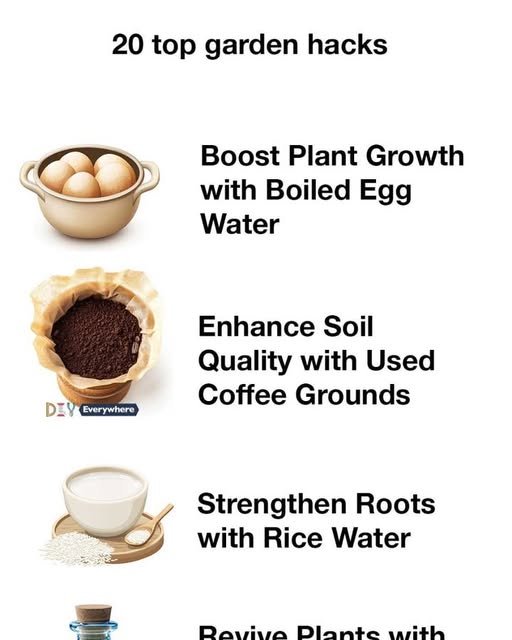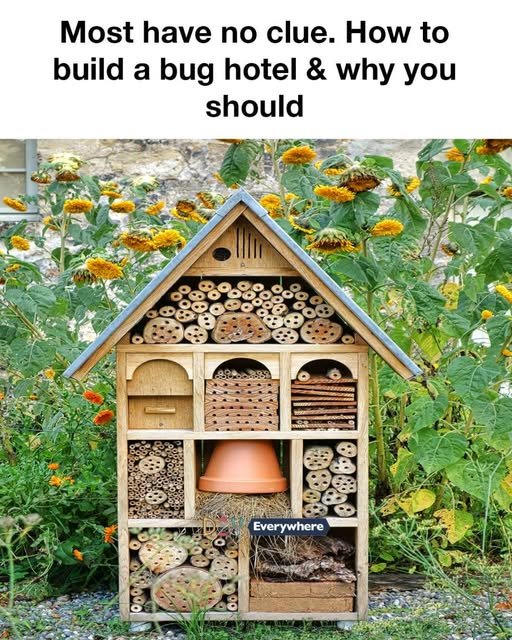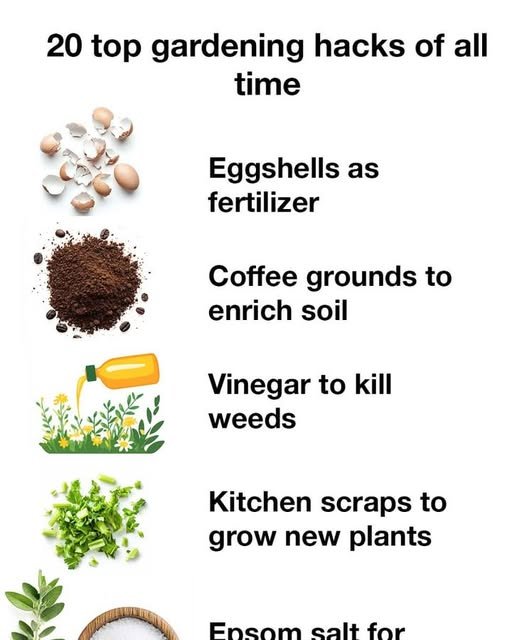Gardening is both an art and a science, requiring patience, knowledge, and a bit of creativity. Whether you’re a seasoned gardener or a novice, garden hacks can simplify your gardening tasks, improve plant health, and maximize yields. These clever tips and tricks are often derived from everyday household items, making them accessible and cost-effective. By integrating these hacks into your gardening routine, you can enhance your garden’s productivity and beauty with minimal effort.
The Benefits of Using Garden Hacks
Garden hacks offer numerous benefits, including cost savings, environmental sustainability, and improved plant health. By repurposing household waste like coffee grounds or eggshells, you reduce waste and enrich your soil naturally. Hacks like homemade pest sprays or natural fertilizers eliminate the need for chemical products, promoting a healthier ecosystem. Additionally, these hacks often require minimal effort and resources, making gardening more accessible and enjoyable for everyone.
1. Boost Plant Growth with Boiled Egg Water
After boiling eggs, don’t discard the water. This nutrient-rich liquid contains calcium and other minerals beneficial for plants. Once cooled, use it to water your plants, providing them with essential nutrients that promote healthy growth and strong cell walls.
2. Enhance Soil Quality with Used Coffee Grounds
Used coffee grounds are a fantastic addition to your garden soil. They improve drainage, water retention, and aeration in the soil. Additionally, coffee grounds are rich in nitrogen, a vital nutrient for plant growth. Simply sprinkle them around your plants or mix them into the soil.
3. Strengthen Roots with Rice Water
Rice water, the starchy liquid left after rinsing rice, is a natural fertilizer that strengthens plant roots. It contains vitamins and minerals that promote root development and overall plant health. Use it to water your plants regularly for best results.
4. Revive Plants with Hydrogen Peroxide
Hydrogen peroxide can be a lifesaver for struggling plants. Its oxygenating properties help aerate the soil and combat root rot. Mix one part hydrogen peroxide with ten parts water and use it to water your plants, reviving them and promoting healthy growth.
5. Natural Pest Control with Neem Oil
Neem oil is a powerful natural pesticide that disrupts the life cycle of pests without harming beneficial insects. Dilute neem oil with water and a few drops of dish soap, then spray it on affected plants to control pests like aphids and spider mites.
6. Composting for Richer Soil
Composting is an excellent way to recycle kitchen and garden waste into nutrient-rich soil. By composting organic materials like fruit peels, vegetable scraps, and grass clippings, you create a natural fertilizer that enriches your garden soil and promotes healthy plant growth.
7. Mulching for Moisture Retention
Mulching involves covering the soil with organic materials like straw, wood chips, or leaves. This practice helps retain moisture, suppress weeds, and regulate soil temperature. As the mulch breaks down, it also adds nutrients to the soil, improving its quality over time.
8. Companion Planting for Pest Management
Companion planting involves growing certain plants together to enhance growth and deter pests. For example, planting marigolds with tomatoes can repel nematodes, while basil can improve the flavor of tomatoes and deter flies. This method promotes a balanced ecosystem in your garden.
9. Homemade Fertilizer with Banana Peels
Banana peels are rich in potassium, phosphorus, and calcium, essential nutrients for plant growth. Chop up banana peels and bury them in the soil near your plants, or soak them in water to create a nutrient-rich fertilizer tea.
10. Epsom Salt for Greener Leaves
Epsom salt, composed of magnesium sulfate, is a natural way to boost plant health. Magnesium is crucial for photosynthesis, and using Epsom salt can result in greener leaves and more vibrant blooms. Dissolve Epsom salt in water and use it to water your plants every few weeks.
11. DIY Drip Irrigation System
A DIY drip irrigation system can save water and ensure your plants receive consistent moisture. Use a plastic bottle with small holes poked in the cap, bury it near the plant roots, and fill it with water. This slow-release system keeps the soil evenly moist.
12. Eggshells for Calcium-Rich Soil
Eggshells are an excellent source of calcium, which is vital for plant cell structure. Crush eggshells and mix them into the soil or use them as a top dressing. Over time, they break down and release calcium, preventing blossom end rot in plants like tomatoes.
13. Vinegar as a Natural Weed Killer
Vinegar is an effective, natural weed killer due to its acetic acid content. Spray undiluted vinegar directly onto weeds on a sunny day. The acid will dry out the weeds, killing them without harming the surrounding soil.
14. Cinnamon to Prevent Fungus
Cinnamon has antifungal properties that can prevent damping-off disease in seedlings. Sprinkle cinnamon on the soil surface when planting seeds to protect them from fungal infections and promote healthy growth.
15. Baking Soda for Sweeter Tomatoes
Baking soda can reduce soil acidity, resulting in sweeter tomatoes. Sprinkle a small amount of baking soda around the base of your tomato plants. This hack is particularly effective in areas with acidic soil, helping to balance pH levels.
16. Garlic Spray for Pest Control
Garlic spray is a natural pest deterrent that repels insects like aphids and caterpillars. Blend garlic cloves with water, strain the mixture, and spray it on your plants. The strong scent keeps pests at bay without harming beneficial insects.
17. Fish Emulsion for Nutrient Boost
Fish emulsion is a potent organic fertilizer made from decomposed fish. It’s rich in nitrogen, phosphorus, and potassium, essential for plant growth. Dilute fish emulsion with water and use it to feed your plants every few weeks for a nutrient boost.
18. Aloe Vera as a Natural Rooting Hormone
Aloe vera gel can be used as a natural rooting hormone to encourage root development in cuttings. Dip the cut end of a cutting into aloe vera gel before planting it in soil. The gel’s natural enzymes promote root growth and protect against pathogens.
19. Use of Seaweed Extract for Plant Growth
Seaweed extract is a natural growth stimulant that provides plants with essential micronutrients. It enhances root development, improves stress tolerance, and boosts overall plant health. Dilute seaweed extract with water and apply it as a foliar spray or soil drench.
20. Rainwater Harvesting for Sustainable Gardening
Collecting rainwater is an eco-friendly way to water your garden. Set up a rain barrel to capture runoff from your roof. Rainwater is free of chemicals found in tap water, making it ideal for plants. Use it to water your garden during dry spells, reducing your water bill and conserving resources.
Conclusion: Maximizing Your Garden’s Potential
By incorporating these garden hacks into your routine, you can maximize your garden’s potential with minimal effort and cost. These tips not only improve plant health and yield but also promote sustainable gardening practices. Whether you’re looking to boost growth, control pests, or enrich your soil, these hacks offer practical solutions that benefit both your garden and the environment. Embrace these innovative techniques and watch your garden thrive.



